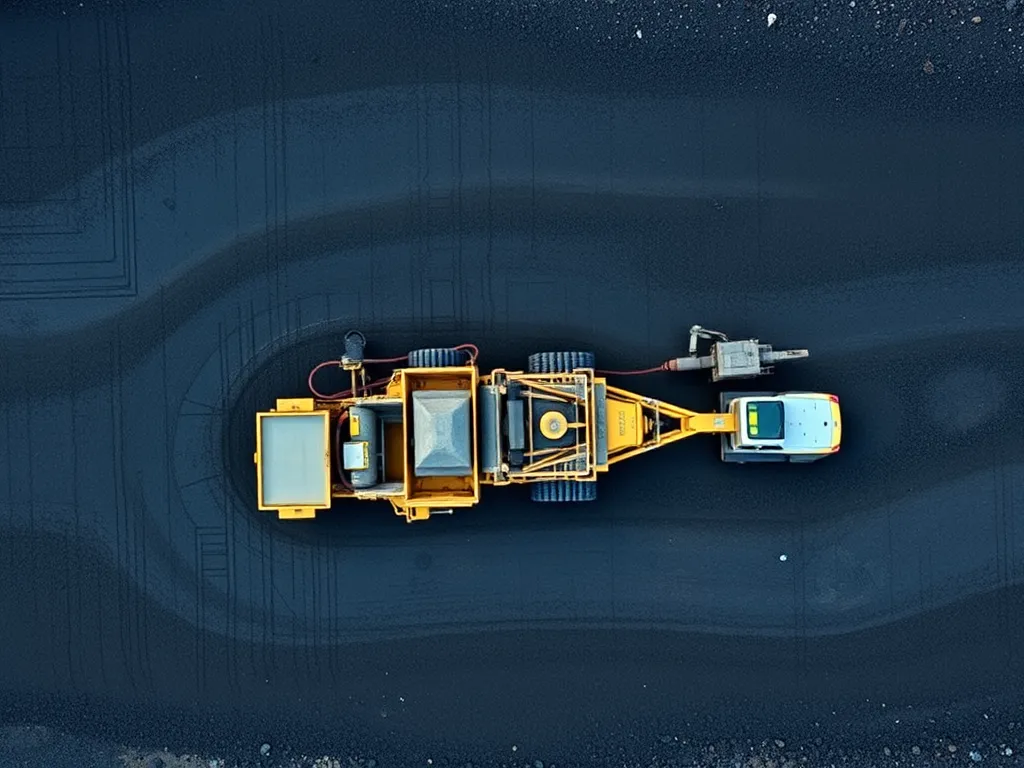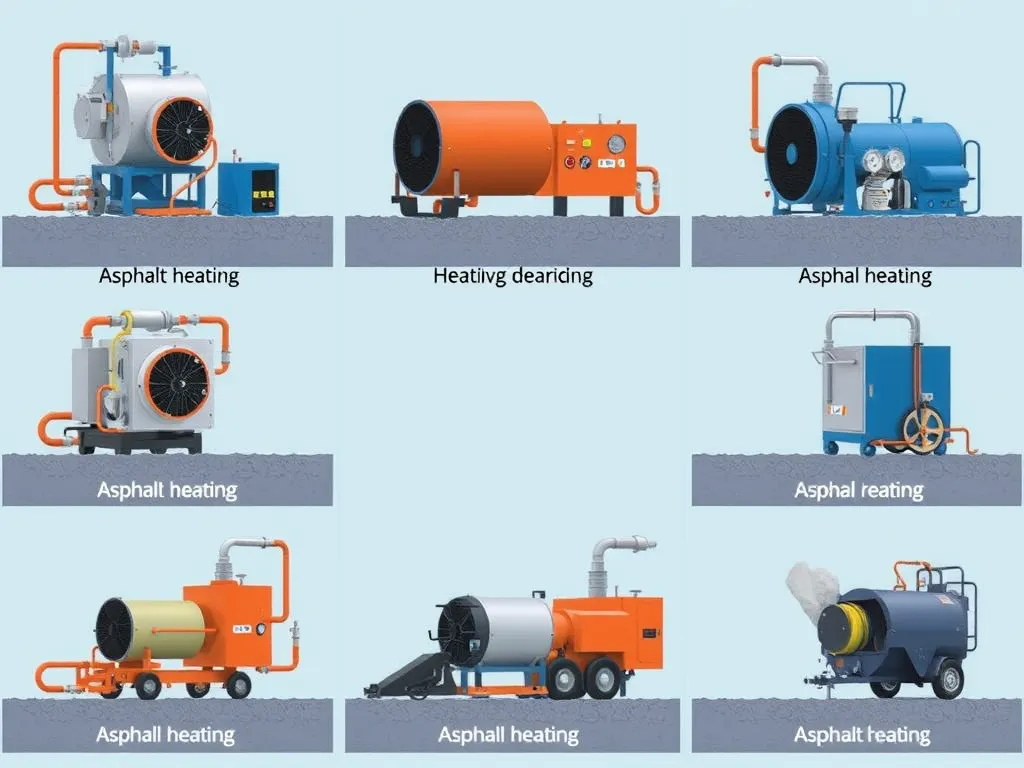Benefits Of Asphalt Driveways: Why Homeowners Choose This Durable Option
Published on: April 13, 2025 | Last Updated: April 15, 2025
Written By: George Voss
Asphalt driveways offer a cost-effective, durable surface made from crushed stone and sand bonded with bitumen. They cost 30-50% less than concrete (averaging $2-$5 per square foot), last 15-20 years with proper care, and handle heavy vehicles without cracking. Their dark color melts snow faster, while smooth texture improves traction. Over 90% of asphalt gets recycled, reducing landfill waste and material costs by 25% during replacements.
This article explores why asphalt remains a top pick for driveways. It breaks down installation costs for a standard 20×20 layout, compares lifespan to pavers or gravel, and details regional perks like heat resistance in Charleston, SC summers. You’ll learn maintenance routines (sealing every 3-5 years), repair strategies for cracks, and how recycled asphalt cuts environmental impact. Local examples from Summerville, SC show climate-specific advantages.
Contents
- Understanding Asphalt Driveways: Key Overview
- Cost-effectiveness Of Asphalt Driveways
- Durability and Longevity
- Functional Benefits Of Asphalt Driveways
- Property Value Considerations
- Regional Advantages
- Maintenance and Repair
- Environmental Considerations
- Asphalt Driveway FAQ
- Final Summary: Key Takeaways
- Additional Resources for You:
Understanding Asphalt Driveways: Key Overview
Asphalt driveways mix crushed stone, sand, and sticky binder (bitumen) to form a solid surface. This blend creates roads that handle cars, trucks, and weather. Hot mix asphalt (HMA) gets poured at 300°F for strong bonds.
What Are Asphalt Driveways?
These driveways use layers: base (gravel), middle (larger stones), top (fine mix). PG binders (performance-graded) adjust for local temps. Superpave specs ensure mix works in heat or cold.
Pros and Cons Of Asphalt Driveways
Weigh these factors before picking asphalt:
Key Advantages of Asphalt Driveways
Durability: Lasts 15-20 years with care Cost: $7-$13 per sq.ft installed Quick install: Ready in 2 days vs concrete’s week Surface: Smooth finish cuts tripping risks Recycled: 95% reused via RAP (reclaimed asphalt pavement)
| Pros | Cons |
|---|---|
| Lower upfront cost | Needs seal every 2-5 years |
| Fixes cracks easily | Softens in 100°F+ heat |
Potential Drawbacks to Consider
Asphalt fades without seal coats. Oil stains show more than on concrete. Freeze-thaw cycles cause cracks if water seeps in. Hot climates may see tire marks or dips over time.
With care, most flaws get managed. Next, let’s break down costs for your project.
Cost-effectiveness Of Asphalt Driveways
Asphalt driveways balance affordability with performance. Initial installation costs stay low compared to materials like concrete or pavers. Maintenance expenses also remain predictable over time.
Average Cost for a 20×20 Asphalt Driveway
A standard 400-square-foot asphalt driveway costs $1,200–$2,800 nationally. Prices vary based on site prep needs, regional labor rates, and aggregate quality. In Charleston, SC, expect $3–$5 per square foot. Summerville projects often fall between $2.80–$4.75. This includes 2-3 inches of compacted hot mix asphalt (HMA) with PG 64-22 binder.
Asphalt Vs. Concrete Driveway Costs
Asphalt saves 40–60% upfront versus concrete. A 400-square-foot concrete slab runs $2,400–$6,000 before factoring in decorative finishes. While concrete lasts longer without resealing, repair costs jump sharply for cracks or settling. Asphalt’s flexibility reduces weather-related damage risks.
| Material | Install Cost (per sq ft) | Resealing Frequency | 30-Year Maintenance Cost |
|---|---|---|---|
| Asphalt | $3–$7 | 3–5 years | $1.50–$2.75/sq ft |
| Concrete | $6–$15 | Not required | $4–$8/sq ft |
Includes crack repairs, joint sealing, and surface treatments
While upfront costs matter, long-term performance is equally critical. Next, let’s examine how asphalt holds up against heavy loads and seasonal temperature swings.
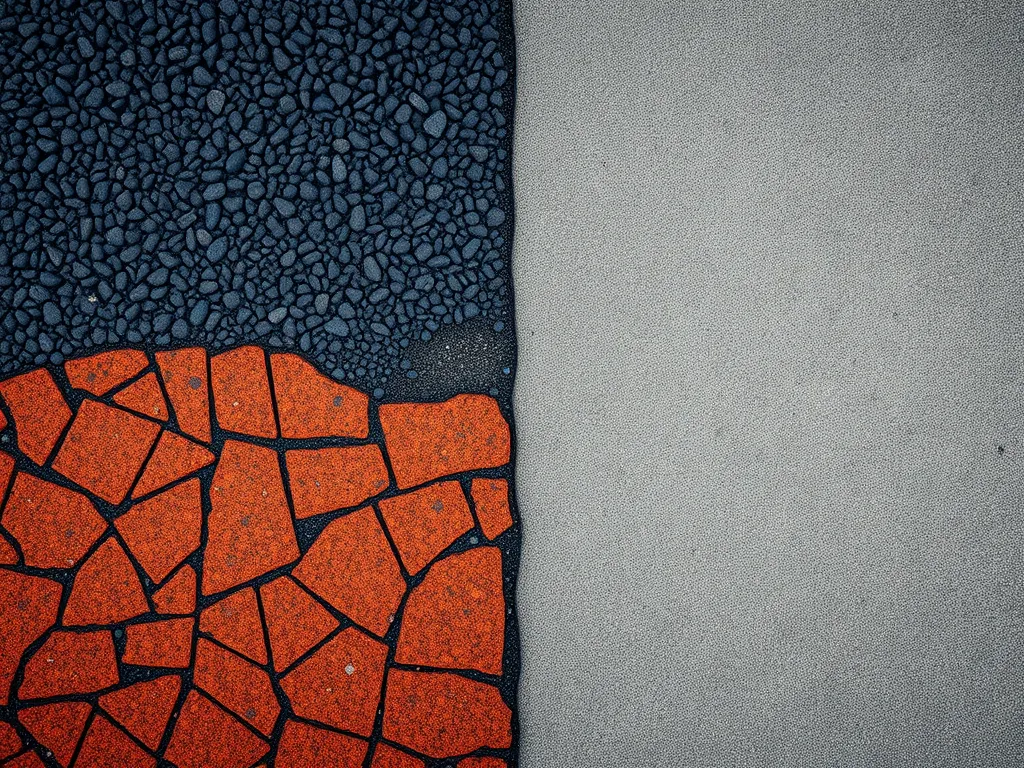
Durability and Longevity
Asphalt driveways stand out for their ability to handle daily wear while lasting decades. This material adapts to temperature shifts without cracking under pressure, making it a reliable choice for varied climates.
Typical Lifespan Of Asphalt Driveways
A well-built asphalt drive lasts 15-20 years with basic upkeep. Compare that to concrete, which might last 25-30 years but costs 20-50% more upfront. Regular sealcoating every 3-5 years adds 5+ years to the surface life. Without care, expect 8-12 years before major repairs.
Factors Affecting Asphalt Durability
Three elements determine longevity: climate, installation quality, and maintenance. Freeze-thaw cycles in colder regions cause thermal cracking, while UV rays soften surfaces in hot areas like Summerville, SC. Proper builds use 2-3 inches of asphalt over 6 inches of compacted gravel base. Skimp on base prep, and rutting appears within 2-3 years. Annual crack filling ($0.15-$0.25 per sq ft) and timely sealcoating ($0.30-$0.70 per sq ft) prevent water damage.
Beyond lasting performance, asphalt drives offer functional perks that boost safety and convenience…
Also See: Asphalt Installation Practices for Lasting Durability
Functional Benefits Of Asphalt Driveways
Asphalt driveways bring practical gains that go beyond basic looks. From safety traits to installation speed, this material adapts to how you live.
Smooth Surface and Safety Features
A fresh asphalt driveway has a uniform, non-porous finish. This cuts skid risks during rain and snow. PG (Performance Graded) binders in the mix boost grip, while proper compaction limits cracks that could trip someone. Many installs also comply with ADA standards for slope, aiding wheelchair access.
Quick Installation Process
Asphalt sets fast. A crew can lay a 1,000-square-foot driveway in 6-8 hours, with driving ready in 24-48 hours. Unlike concrete, which needs 7 days to cure, asphalt hardens as it cools. This means no long waits or plastic sheets to protect wet slabs. Costs stay low too—labor runs $2-$5 per square foot vs. $8-$15 for stamped concrete.
Year-round Usability
Asphalt handles -40°F winters and 120°F summers without major damage. Its slight flexibility stops cracks during freeze-thaw cycles in states like Michigan. In hot zones like Arizona, additives like gilsonite stop rutting. Snow melts faster on dark asphalt than light concrete, cutting ice buildup.
With these functional perks covered, it’s worth noting how they also boost your home’s curb appeal—a topic we’ll unpack next.
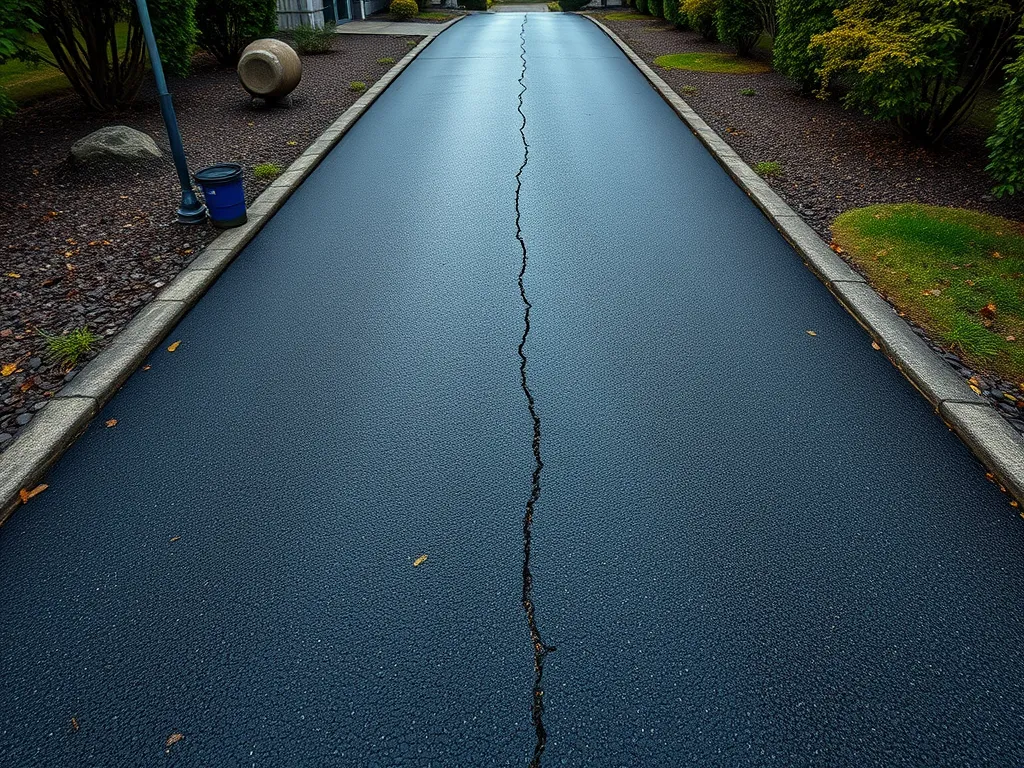
Property Value Considerations
An asphalt driveway boosts curb appeal with its smooth black finish, making homes stand out. This visual upgrade can lift a property’s worth by up to 5% based on data from national housing surveys. Buyers favor low-maintenance surfacing that holds up against daily wear.
Impact on Property Taxes
A higher home appraisal from an asphalt driveway might slightly increase tax obligations. Local tax formulas apply mill rates to assessed values – a $4,000 value gain could add $80 annually at a 2% rate. But this surfacing costs 30% less than concrete upfront, creating a favorable cost-to-value ratio. Many towns cap annual tax hikes, softening long-term fiscal impacts.
Looking at location-specific factors? Our following part breaks down how asphalt performs in South Carolina’s Lowcountry towns.
Regional Advantages
Asphalt driveways adapt to local climates and soil conditions. In South Carolina’s Lowcountry, two cities showcase unique benefits tied to regional factors.
Benefits in Charleston, SC
Charleston’s humid subtropical climate demands materials that withstand heavy rainfall (average 48 inches annually) and summer heat. Asphalt’s porous design channels water efficiently, reducing flooding risks. Local contractors like Palmetto Corp use PG 64-22 binders rated for coastal temperatures between 30°F and 110°F.
- Resists salt corrosion near coastal areas
- Flexible surface handles frequent freeze-thaw cycles in winter
- Quick repairs minimize downtime during hurricane season
Benefits in Summerville, SC
Summerville’s clay-rich soil expands when wet, requiring flexible pavement. Asphalt’s elasticity prevents cracks from soil shifts. The material also dampens noise—a perk for the town’s historic residential districts.
- Withstands annual average humidity levels above 75%
- Sealcoating costs 15-20% less than concrete repairs
- Local recyclers like Lowcountry Paving reuse 95% of old asphalt
These location-specific perks highlight why asphalt remains popular across South Carolina. Next, let’s explore how regular upkeep keeps your driveway performing at its best.
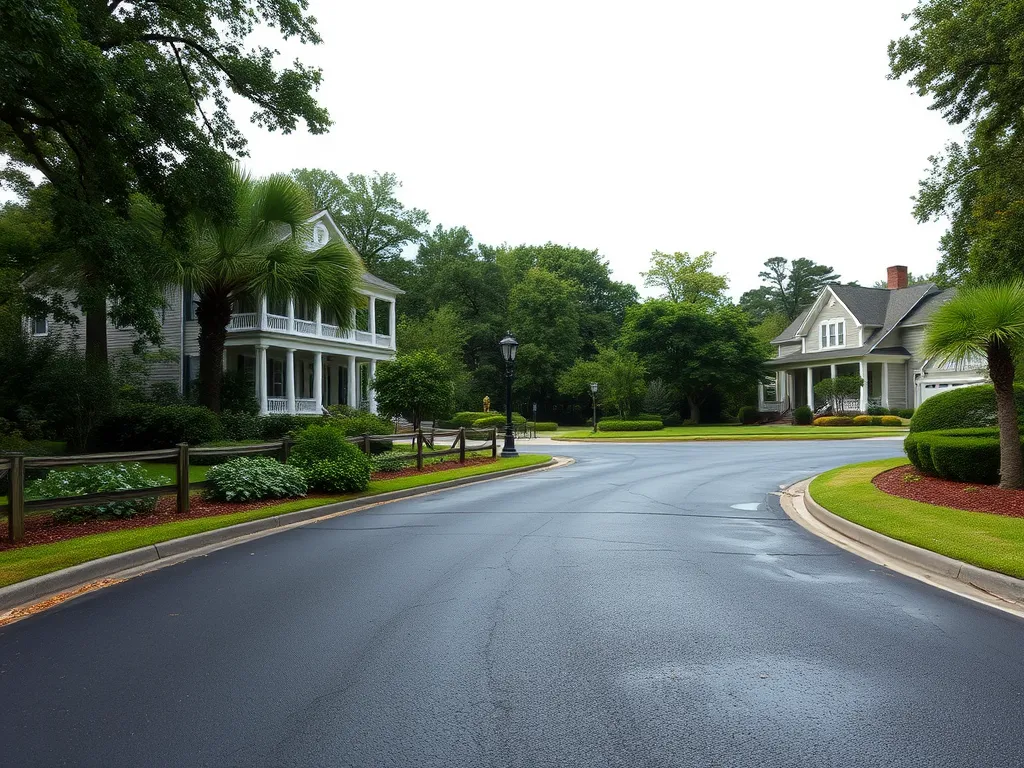
Maintenance and Repair
Proper upkeep maximizes the asphalt driveway benefits homeowners value most: durability, safety, and cost efficiency. Regular maintenance prevents minor issues from escalating into costly repairs.
Routine Care Requirements
Asphalt driveways thrive with simple seasonal care. Sweep debris monthly to prevent drainage clogs. Inspect surfaces annually for early signs of cracks or potholes. Sealcoat every 24-36 months using coal-tar or asphalt-based emulsions ($0.15-$0.25 per sq.ft.). Avoid heavy loads exceeding 3,000 PSI to prevent depressions. These steps protect the bitumen-aggregate mix, extending lifespan up to 20 years.
Sealing and Crack Repair
Sealcoating shields against UV oxidation, water infiltration, and oil stains. Address cracks promptly to prevent subbase erosion. Use hot-pour rubberized filler for cracks wider than 1/4″ ($1-$3 per linear foot). For alligator cracks (web-like patterns), remove damaged sections and patch with fresh asphalt mix. Timely repairs reduce long-term costs by 40-60% compared to full replacements.
| Crack Type | Characteristics | Repair Method | Cost Range |
|---|---|---|---|
| Edge Cracks | Parallel to driveway sides | Fill with sealant + compact base | $0.50-$1.50/ft |
| Linear Cracks | Straight lines along seams | Routing + crack sealing | $1.20-$3.00/ft |
| Alligator Cracks | Interconnected hexagonal patterns | Remove + replace asphalt layer | $8-$12/sq.ft |
With consistent care, asphalt driveways maintain structural integrity through freeze-thaw cycles and heavy traffic. This resilience directly ties to their eco-friendly potential—especially when recycled materials are used.
Environmental Considerations
Asphalt driveways offer eco perks many miss. Let’s break down how they help our planet while boosting your home value.
Recyclability Of Asphalt Materials
Asphalt is 100% recyclable. Old driveways get ground into RAP (reclaimed asphalt pavement). This RAP gets reused in new mixes, slashing waste. The EPA states 99% of asphalt gets reused or recycled yearly.
Recycled asphalt cuts costs by up to 30% over new mixes. It also trims mining needs for raw stone and sand. Less energy is used—up to 20% less vs making new asphalt. Fewer trucks hauling fresh materials mean lower fuel use and emissions.
| Factor | Recycled Asphalt | New Asphalt |
|---|---|---|
| Cost per ton | $12-$18 | $40-$60 |
| CO2 per ton | 30 lbs | 48 lbs |
PG binders (performance-graded asphalt cement) keep recycled mixes strong. Tests show RAP blends meet specs for load, heat, and cold. This makes recycled driveways just as tough as new ones.
Proper care keeps these perks intact over time.
Asphalt Driveway FAQ
Why Choose Asphalt Over Other Materials?
Asphalt offers several benefits over other paving materials like concrete, brick, or gravel. It is generally less expensive to install, can be laid more quickly, and provides excellent durability and flexibility. Additionally, asphalt’s dark color helps it retain heat, which assists in faster snow melting during winter months. Its smooth surface also promotes better traction and safety, especially in wet conditions.
How Does Weather Affect Asphalt Driveways?
Weather can significantly impact asphalt driveways. In extreme heat, the material may soften, leading to ruts or depressions, especially under heavy vehicle traffic. Conversely, in cold climates, freeze-thaw cycles can cause cracking if proper drainage is not implemented. Regular maintenance such as sealing can help mitigate these effects and extend the lifespan of your driveway.
Where to Find Technical Resources (PDF Guides)
Technical resources and guides on asphalt driveways can often be found through local paving contractors, industry associations, and government websites focused on construction and building standards. Many organizations, such as the National Asphalt Pavement Association (NAPA), offer downloadable materials and guidelines in PDF format to assist homeowners and professionals in understanding asphalt paving best practices.
Final Summary: Key Takeaways
Asphalt driveways offer numerous benefits, making them a popular choice among homeowners. Their cost-effectiveness, particularly when compared to concrete, allows for substantial savings during installation. Additionally, the durability and longevity of asphalt ensure a reliable surface that can withstand various weather conditions.
Beyond financial advantages, asphalt driveways provide functional features like smooth surfaces for safety and quick installation times, minimizing disruption. Their recyclability highlights a commitment to the environment, as asphalt can be repurposed and reused in future projects.
Regional advantages in areas like Charleston and Summerville enhance their appeal due to local climate and construction practices. Routine maintenance, including sealing and crack repair, can extend the life of your asphalt driveway significantly.
For in-depth information on asphalt driveways and additional resources, check out Asphalt Calculator USA.
Additional Resources for You:
- Transportation Research Board (TRB, Peer-Reviewed Research & Circulars)
- 5 Reasons to Use Asphalt Paving for Your New Driveway – Shattuck Paving & Sealcoating
- Asphalt or Concrete? The Pros & Cons of Each
- Asphalt vs. Concrete Driveway: Which Should You Choose? | Angi
- What Are The Advantages of Using Asphalt on Driveways?

